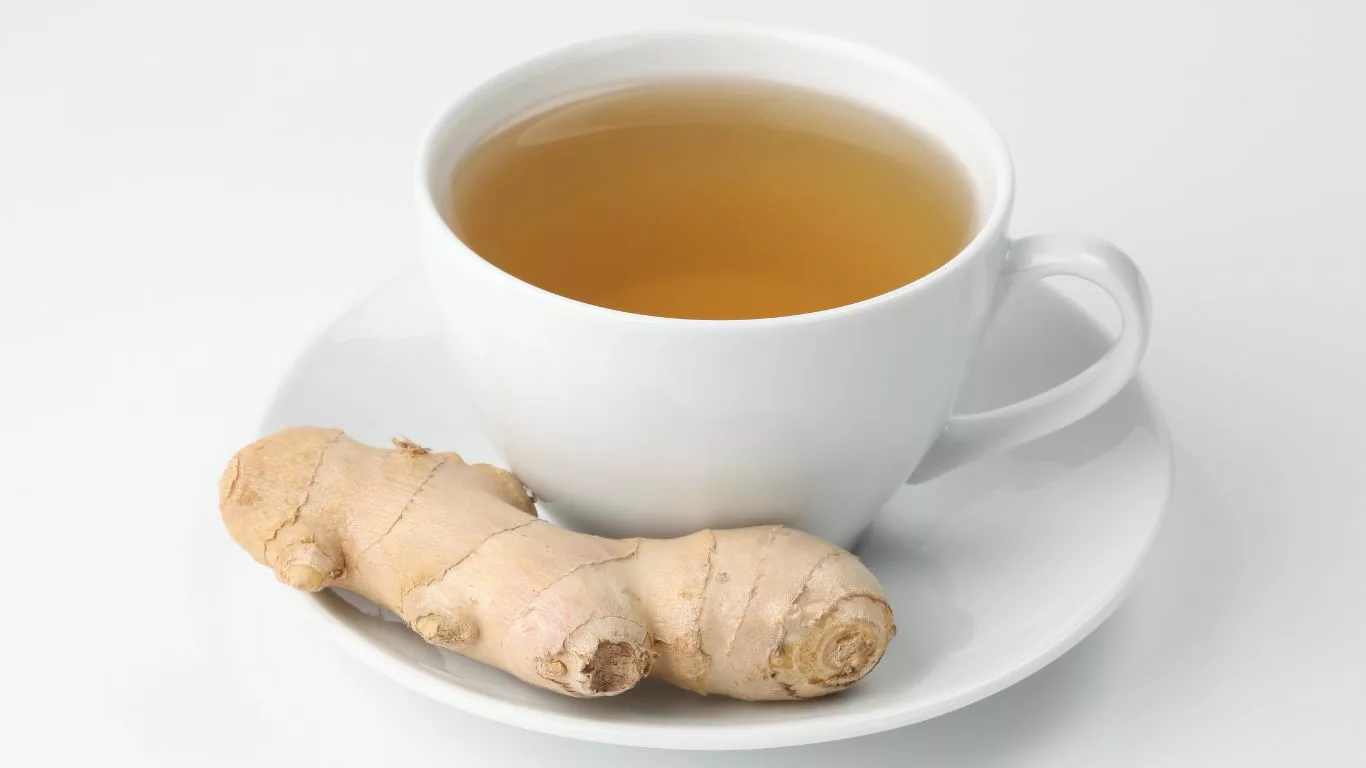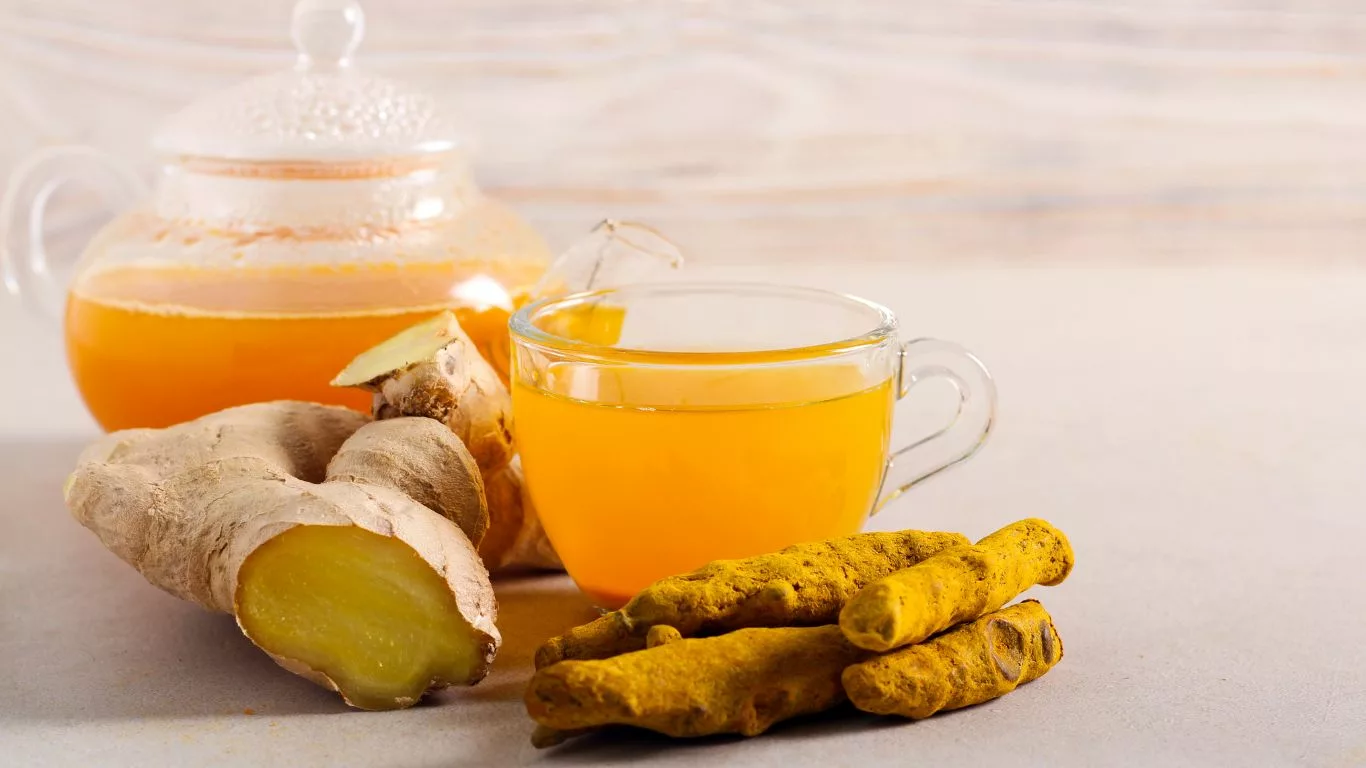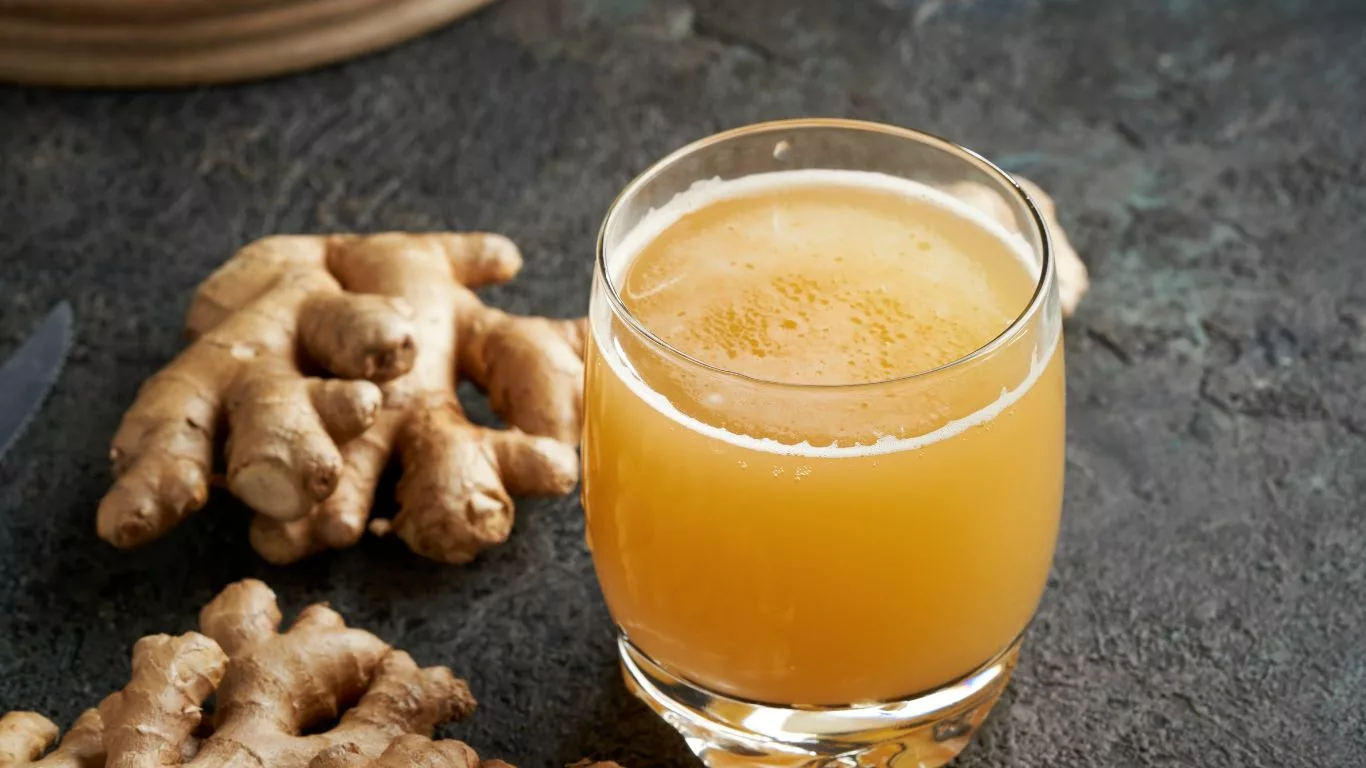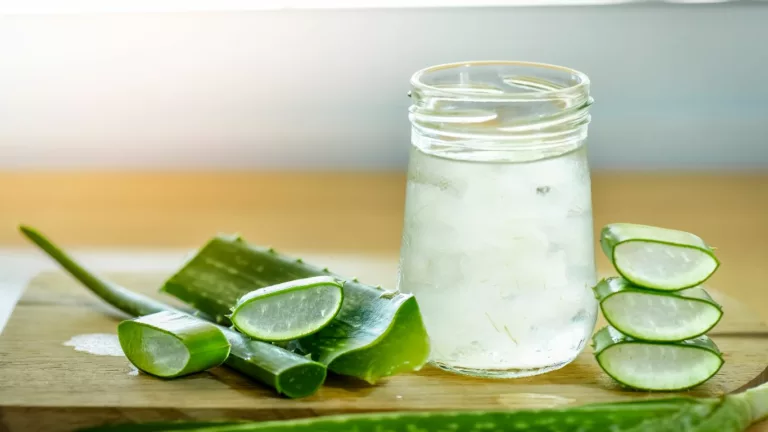Ginger’s Role in Blood Pressure: Benefits and Mechanisms
Explore how ginger impacts blood pressure, its potential benefits, and scientific mechanisms. Discover a holistic approach to cardiovascular well-being.
Introduction
Blood pressure management stands as a critical pillar of overall cardiovascular health. In a world marked by the prevalence of heart-related issues, the quest for effective and holistic approaches to blood pressure regulation gains momentum. Amidst this pursuit, natural remedies have garnered significant attention, and ginger, a humble and versatile root, emerges as a potential contender. This article embarks on a comprehensive journey, delving into the intricate connection between ginger and blood pressure, shedding light on its potential benefits, and exploring the scientific mechanisms that underpin this relationship.
Understanding the Significance of Blood Pressure Management
Blood pressure serves as a dynamic indicator of the force exerted by circulating blood against the walls of arteries. It comprises two values: systolic pressure (the force when the heart contracts) and diastolic pressure (the force when the heart relaxes). Persistent elevation of blood pressure, known as hypertension, places undue strain on the cardiovascular system, contributing to conditions like heart disease, stroke, and kidney dysfunction. Recognizing the vital role of blood pressure in overall health underscores the importance of effective management strategies.
Exploring Natural Approaches for Blood Pressure Regulation
As modern lifestyles continue to contribute to the surge in chronic health conditions, the appeal of natural remedies as an alternative or complementary approach to traditional medical interventions intensifies. The allure of such approaches lies in their holistic nature – addressing not just the symptoms but also the underlying causes. Ginger, with its historical roots in traditional medicine and its array of bioactive compounds, stands as an intriguing option for those seeking natural avenues for blood pressure management.

Ginger and Blood Pressure: An Overview
Ginger, scientifically known as Zingiber officinale, has been cherished for centuries for its distinctive flavor and medicinal properties. Beyond its celebrated role in culinary pursuits, ginger boasts a rich history of use in traditional medicine systems. While its digestive benefits are well-known, the exploration of ginger’s potential impact on blood pressure adds a new dimension to its versatile profile.
Unveiling the Potential Benefits of Ginger for Blood Pressure
The potential benefits of ginger extend beyond the realm of taste and culinary appeal. It is a reservoir of bioactive compounds that have been studied for their various health-promoting properties. Within the context of blood pressure, ginger’s potential lies in its capacity to influence factors that contribute to hypertension, such as inflammation, oxidative stress, and endothelial dysfunction.
Brief Overview of Ginger’s Nutritional Composition
Ginger is a nutritional powerhouse, brimming with vitamins, minerals, and antioxidants. Notably, it provides a notable dose of vitamin C, a potent antioxidant that supports immune function and combats oxidative stress. Additionally, ginger offers minerals like potassium and manganese, which play pivotal roles in maintaining electrolyte balance and supporting enzymatic reactions within the body.

Mechanisms Behind Ginger’s Effects on Blood Pressure
The interaction between ginger and blood pressure is grounded in intricate molecular mechanisms. The active constituents of ginger engage in a complex interplay with various physiological pathways, ultimately influencing the tone and function of blood vessels.
Delving into the Active Compounds in Ginger
Ginger’s therapeutic potential can be attributed to its bioactive compounds, with gingerols taking center stage. Gingerols are phenolic compounds known for their potent antioxidant and anti-inflammatory properties. Among these, 6-gingerol stands out for its potential vasodilatory effects, a mechanism that holds promise for blood pressure management.
How Ginger May Impact Blood Pressure Regulation
Ginger’s potential influence on blood pressure centers around its ability to enhance the production of nitric oxide (NO). Nitric oxide is a molecule with far-reaching effects, notably its role in relaxing blood vessels, improving blood flow, and potentially reducing blood pressure. Ginger’s anti-inflammatory properties further contribute to its potential impact on blood pressure regulation.

Scientific Research: Ginger’s Impact on Blood Pressure
Scientific exploration into ginger’s effects on blood pressure has unveiled a realm of possibilities. Rigorous research, spanning both animal and human studies, has contributed to our understanding of how ginger consumption may impact blood pressure parameters.
Examining Research Studies and Clinical Trials
Clinical trials provide valuable insights into the effects of ginger on blood pressure in real-world scenarios. A study published in the “International Journal of Preventive Medicine” investigated the effects of ginger supplementation on blood pressure in individuals with type 2 diabetes. The study revealed a significant decrease in both systolic and diastolic blood pressure after eight weeks of ginger consumption.
Analyzing Findings on Ginger’s Influence on Blood Pressure Levels
The “Journal of Hypertension Research” featured a study that evaluated the effects of ginger extract on hypertensive patients. The study reported a modest yet statistically significant reduction in blood pressure among participants who received ginger extract. These findings underscore the potential of ginger as a natural modality to complement conventional blood pressure management.

Using Ginger to Support Healthy Blood Pressure
Incorporating ginger into one’s lifestyle is a practical and accessible approach to potentially support healthy blood pressure levels. Whether through culinary use or supplementation, ginger offers diverse avenues to harness its potential benefits.
Practical Ways to Incorporate Ginger into Your Diet
- Fresh Ginger Usage: Grated, sliced, or minced ginger can be seamlessly integrated into a myriad of dishes, from soups and stews to marinades and dressings. The zesty and aromatic notes of ginger enhance the flavor profile of meals while contributing to potential health benefits.
- Ginger Supplements and Dosage: For individuals who may find it challenging to incorporate sufficient ginger into their diet, supplements offer a convenient alternative. Ginger supplements, available in various forms such as capsules or powders, provide standardized doses that can be incorporated into a daily routine.

Ginger vs. Traditional Approaches: A Comparative Analysis
Comparing the natural approach of ginger to traditional medical interventions for blood pressure management sheds light on the potential synergies and unique attributes of this root.
Contrasting Ginger’s Natural Approach with Conventional Blood Pressure Management
Traditional approaches to blood pressure management often involve pharmaceutical interventions, such as diuretics, beta-blockers, and ACE inhibitors. While these medications can effectively lower blood pressure, they may also carry potential side effects. Ginger, on the other hand, offers a natural approach that targets multiple aspects of blood pressure regulation without the associated pharmacological risks.
Exploring Potential Synergies Between Ginger and Medical Interventions
Emerging research suggests that ginger’s bioactive compounds may complement the effects of certain blood pressure medications. For instance, the vasodilatory properties of ginger may synergize with the actions of antihypertensive drugs, potentially enhancing their effectiveness.

Lifestyle Choices and Blood Pressure Optimization
While ginger holds promise as a valuable tool in blood pressure management, it is most effective within the context of a comprehensive lifestyle approach. A balanced diet, regular physical activity, and mindful stress management collectively contribute to optimal blood pressure levels.
Complementing Ginger Use with a Balanced Diet and Active Lifestyle
The symbiotic relationship between ginger and a balanced diet is crucial. A diet rich in whole grains, lean proteins, healthy fats, and an abundance of fruits and vegetables provides the necessary nutrients to support cardiovascular health. Ginger’s potential anti-inflammatory and antioxidant properties align seamlessly with the goals of a heart-healthy diet.
Tips for Creating a Holistic Blood Pressure Management Plan
- Balanced Diet: Prioritize nutrient-dense foods that are low in sodium and saturated fats. Incorporate leafy greens, berries, nuts, fatty fish, and whole grains into your meals.
- Regular Physical Activity: Engage in a blend of aerobic exercises, strength training, and flexibility exercises to promote heart health and overall well-being.
- Stress Reduction: Incorporate stress-reduction techniques such as mindfulness meditation, deep breathing, and yoga to mitigate the impact of stress on blood pressure.

Precautions and Interactions
While ginger offers a promising natural avenue for blood pressure management, it is crucial to be mindful of potential interactions and contraindications, ensuring safe and effective use.
Understanding Potential Interactions Between Ginger and Medications
Ginger’s bioactive compounds may interact with certain medications, necessitating cautious use, especially among individuals taking anticoagulants or antihypertensive drugs. Consultation with a healthcare provider is essential to assess potential interactions and determine the most appropriate approach.
Precautions for Individuals with Allergies or Specific Medical Conditions
Individuals with known allergies to ginger, or those with gallbladder disorders, should exercise caution when considering ginger use. Pregnant and breastfeeding individuals are advised to consult healthcare professionals before incorporating ginger into their regimen.
The Future of Ginger Research and Blood Pressure Regulation
The evolving landscape of scientific inquiry holds promise for uncovering further insights into the intricacies of ginger’s relationship with blood pressure regulation.
Emerging Studies and Areas of Further Investigation
Researchers continue to explore ginger’s potential mechanisms of action, with a focus on elucidating the specific pathways through which ginger impacts blood pressure regulation. Future studies may delve into the potential synergy between ginger and other natural compounds, paving the way for novel combination therapies.
Potential Implications for Blood Pressure Treatment and Prevention
As the body of evidence grows, the integration of ginger into mainstream blood pressure management strategies becomes an exciting prospect. Ginger’s natural and multi-faceted attributes align seamlessly with the broader shift towards holistic and personalized healthcare approaches.

Conclusion
The intriguing interplay between ginger and blood pressure introduces a fresh dimension to the realm of cardiovascular health. Ginger’s potential benefits, rooted in its bioactive compounds and physiological effects, offer a promising avenue for those seeking to optimize blood pressure levels naturally. However, the path to effective blood pressure management involves a multi-faceted approach that includes dietary choices, physical activity, stress reduction, and, if appropriate, the integration of natural remedies like ginger. As you embark on this journey towards holistic health, remember that consultation with a healthcare professional is key to crafting an individualized plan that aligns with your unique health needs and goals. By synergizing the benefits of ginger with a balanced lifestyle, you take proactive steps towards nurturing your cardiovascular well-being and fostering a healthier future.
Appendices
References
- Adil, M., Kandhare, A. D., & Ghosh, P. (2014). Therapeutics Role of Ginger and Its Active Constituents in Alzheimer’s Disease: A Review. European Journal of Medicinal Plants, 4(2), 88-101. https://www.ncbi.nlm.nih.gov/pmc/articles/PMC7644455/
- Mozaffari-Khosravi, H., Talaei, B., Jalali, B. A., & Najarzadeh, A. (2016). The Effect of Ginger Powder Supplementation on Blood Pressure in Patients with Type 2 Diabetes: A Double-Blind, Randomized, Placebo-Controlled Trial. Complementary Therapies in Medicine, 25, 102-108. https://jnfs.ssu.ac.ir/browse.php?a_id=159&sid=1&slc_lang=en&html=1
- National Center for Complementary and Integrative Health. (2020). Ginger. https://www.nccih.nih.gov/health/ginger
FAQs
- Is ginger safe for everyone?
- While ginger offers potential benefits, individuals with allergies to ginger or certain medical conditions should consult a healthcare provider before use.
- How can I incorporate ginger into my diet?
- You can grate or slice fresh ginger into teas, soups, stir-fries, or salads. Ginger supplements are also available but should be used under professional guidance.
- Can ginger replace blood pressure medications?
- Ginger can be a supportive component of a holistic approach to blood pressure management. Consult a healthcare professional before making any changes to your medication regimen.
Disclaimer
The information presented in this article is for educational purposes only. It is not intended as a substitute for professional medical advice, diagnosis, or treatment. Always seek the advice of your physician or qualified healthcare provider with any questions you may have regarding a medical condition. Never disregard professional medical advice or delay in seeking it because of something you have read in this article.

Camellia Wulansari is a dedicated Medical Assistant at a local clinic and a passionate health writer at Healthusias.com. With years of hands-on experience in patient care and a deep interest in preventive medicine, she bridges the gap between clinical knowledge and accessible health information. Camellia specializes in writing about digestive health, chronic conditions like GERD and hypertension, respiratory issues, and autoimmune diseases, aiming to empower readers with practical, easy-to-understand insights. When she’s not assisting patients or writing, you’ll find her enjoying quiet mornings with coffee and a medical journal in hand—or jamming to her favorite metal band, Lamb of God.







